Introduction
Buddha’s birthday, also known as Vesak or Buddha Purnima, is the most important festival in the Buddhist calendar. Celebrated on the full moon day in May, this auspicious occasion marks the birth, enlightenment, and demise of Gautama Buddha, the founder of Buddhism. As millions around the world come together to honor the Buddha, it is a time for deep reflection, joyful celebration, and cultural unity.
In this article, we will explore the significance of Buddha’s birthday, how Buddha’s birthday is celebrated globally, delve into the traditional customs and rituals associated with this day, understand its symbolic meanings, and discover ways to celebrate Buddha’s birthday both at home and within the community. Join us in exploring the rich tapestry of practices and traditions that make this day so profoundly significant.
Understanding the Significance of Buddha’s Birthday
Buddha’s birthday, also known as Vesak or Buddha Purnima, is the most important festival in Buddhism. It is celebrated on the full moon day in May, and marks the birth, enlightenment, and death of Gautama Buddha, the founder of Buddhism.
The significance of Buddha’s birthday lies in the teachings and life of the Buddha himself. His teachings emphasize the importance of living a compassionate and mindful life, and his life story is seen as an inspiration to those who seek enlightenment. Celebrating his birthday is a way for Buddhists to reflect on his teachings and honor his legacy.
The birth of the Buddha is considered a miraculous event in Buddhism. According to tradition, his mother, Queen Maya, gave birth to him while standing under a sala tree in Lumbini, Nepal. The Buddha’s birth is seen as a symbol of hope and new beginnings, and his teachings offer a path to liberation from suffering.
The enlightenment of the Buddha is another important aspect of his life story. After years of searching for the truth, he finally attained enlightenment while meditating under a bodhi tree. His realization of the Four Noble Truths and the Eightfold Path became the foundation for his teachings, and continue to guide Buddhists today.
Finally, the demise of the Buddha, or his Mahaparinirvana (final passing away), is also significant. It is believed that he passed away at the age of 80, having completed his mission of spreading his teachings to the world. His Mahaparinibbana is seen as a reminder of the impermanence of all things, and a call to live a meaningful and compassionate life.
When is Buddha’s Birthday Celebrated Around the World?
The date of Buddha’s Birthday is determined based on the lunar calendar and varies each year, typically falling in May. This year, it falls on 22 May.
In most countries with significant Buddhist populations, such as China, Japan, South Korea, and Southeast Asian nations, Buddha’s Birthday is observed as a national holiday. The specific date may differ slightly from country to country, but the celebrations generally take place on the full moon day of the sixth lunar month.
According to the Buddhist calendar, it falls on May 22 this year. However, in Western countries, most people will celebrate it on the weekends, and in some places, throughout the month.
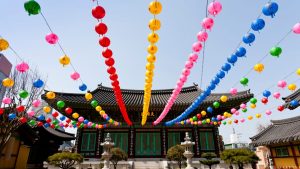
Traditional Customs and Rituals for Observing Buddha’s Birthday
Buddha’s birthday is celebrated in various ways across different cultures and countries. Here are some of the traditional customs and rituals for observing Buddha’s birthday:
- Bathing Buddha: In many countries, people celebrate Buddha’s birthday by bathing the Buddha statue. This is done by pouring fragrant water over the statue, symbolizing the purification of the mind and body.
- Lighting Lanterns: In Korea, people celebrate Buddha’s birthday by lighting lanterns. These lanterns are often decorated with Buddhist symbols and are hung outside homes and temples.
- Offering Flowers: In Thailand, people offer flowers to Buddha as a sign of respect and devotion. The flowers are often arranged in elaborate displays and placed in front of Buddha statues.
- Chanting and Prayers: In many Buddhist communities, people gather to chant and recite prayers on Buddha’s birthday. This is done to honor Buddha and to seek his blessings for the coming year.
- Vegetarianism: In some Buddhist communities, people observe vegetarianism on Buddha’s birthday. This is done as a way to practice compassion and to honor Buddha’s teachings on non-violence and non-harm.
- Giving to Charity: Many Buddhists see Buddha’s birthday as an opportunity to practice generosity and to give to those in need. They may make donations to charities or perform acts of kindness for others.
- Processions and Parades: In some countries, such as Sri Lanka and Taiwan, people celebrate Buddha’s birthday with processions and parades. These may include floats, dancers, and musicians, and are often held in the streets.
Overall, the customs and rituals for observing Buddha’s birthday vary widely depending on the culture and country. However, they all share a common theme of honoring Buddha’s teachings and seeking to live a life of compassion, kindness, and enlightenment.
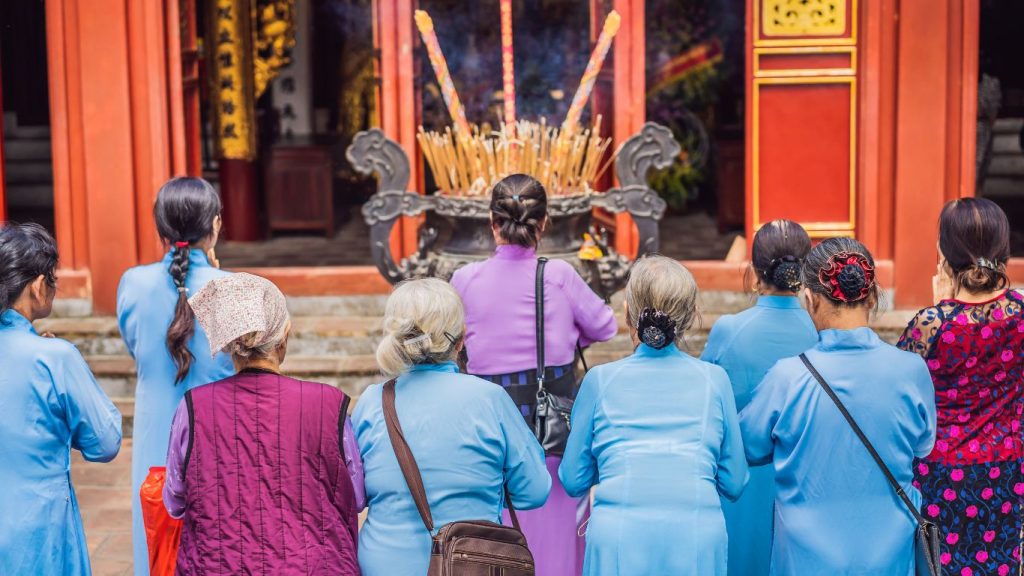
Symbolic Meanings and Practices Associated with Buddha’s Birthday
Buddha’s birthday is celebrated with great joy and devotion by millions of Buddhists worldwide, who gather together to pay homage to the Buddha and his teachings. Here are some of the symbolic meanings and practices associated with Buddha’s birthday:
- Lotus flowers: The lotus flower is a symbol of purity, enlightenment, and spiritual rebirth in Buddhism. It is believed that the Buddha was born from a lotus flower, and so the flower is often used to decorate Buddhist temples and shrines on Buddha’s birthday.
- Bathing the Buddha: In many Asian countries, it is a tradition to bathe small Buddha statues with water and flowers on Buddha’s birthday. This ritual symbolizes purification, renewal, and the washing away of negative karma.
- Offering food: Buddhists often offer food to monks and nuns on Buddha’s birthday as a way of showing respect and gratitude for their teachings. This practice also symbolizes the importance of generosity and compassion in Buddhism.
- Lanterns: In some Buddhist communities, lanterns are lit on Buddha’s birthday to symbolize the light of the Buddha’s teachings and the path to enlightenment.
- Meditation: Many Buddhists meditate on Buddha’s birthday as a way of deepening their spiritual practice and connecting with the Buddha’s teachings.
- Chanting: Chanting is another common practice on Buddha’s birthday, with Buddhists reciting sutras and mantras as a way of honoring the Buddha and his teachings.
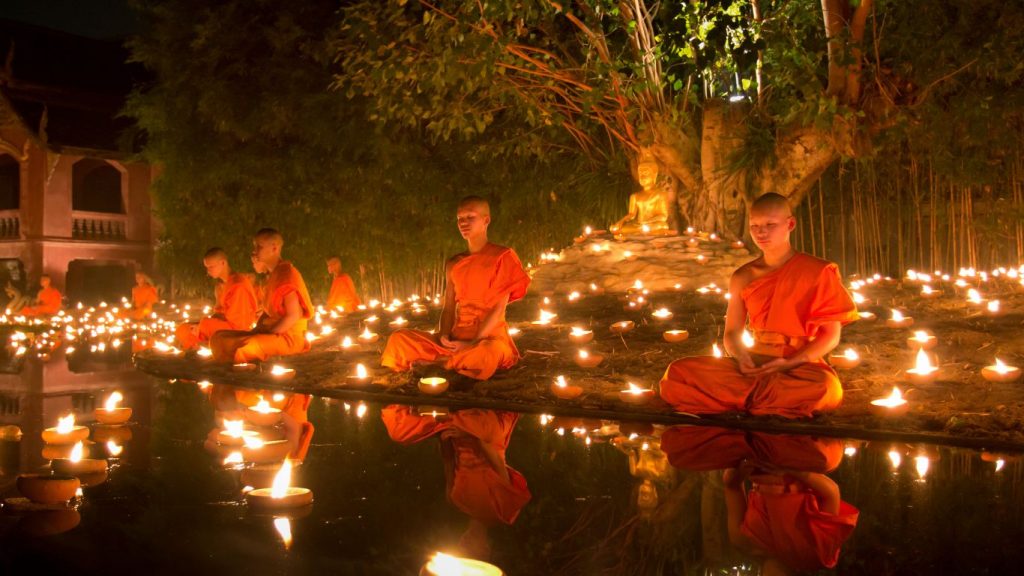
Ways to Celebrate Buddha’s Birthday at Home or in the Community
- Meditate: Buddha’s birthday is the perfect time to meditate. Take some time out of your day to sit in silence and contemplate the teachings of Buddha.
- Make an offering: You can make an offering to Buddha by lighting candles, incense, or flowers. This is a great way to show your respect and gratitude for his teachings.
- Attend a virtual service: Many Buddhist temples and centers are now offering virtual services. This is a great way to connect with the community and celebrate Buddha’s birthday together.
- Read Buddhist scriptures: Spend some time reading Buddhist scriptures, such as the Dhammapada or the Lotus Sutra. These texts offer valuable insights into Buddhist philosophy and can help deepen your understanding of the teachings.
- Practice compassion: Buddha taught that compassion is essential to achieving enlightenment. Take some time to practice compassion towards others, whether it’s through volunteering, donating to charity, or simply being kind to those around you.
- Cook a vegetarian meal: Many Buddhists follow a vegetarian diet, so why not cook a delicious vegetarian meal to celebrate Buddha’s birthday? This is a great way to honor his teachings and promote mindfulness in your daily life.
- Reflect on the teachings of Buddha: Take some time to reflect on the teachings of Buddha and how they can be applied to your life. Use this time to set intentions and make positive changes in your behavior.
- Chant: Chanting is a common practice in Buddhism and can be a powerful way to connect with the teachings of Buddha. You can chant alone or with others, using traditional Buddhist chants or creating your own.
- Create a shrine: Create a small shrine in your home or community space to honor Buddha and his teachings. This can be as simple or elaborate as you like, and can include candles, incense, flowers, and statues of Buddha.
- Spread kindness: Finally, use Buddha’s birthday as an opportunity to spread kindness and positivity in your community. Whether it’s through acts of service, volunteering, or simply being kind to those around you, this is a great way to honor his teachings and make the world a better place.
Conclusion
As we have comprehended the the significance of Buddha’s birthday, journeyed through the various ways Buddha’s birthday is celebrated around the world, explored the traditional customs and rituals, and delved into the symbolic meanings and practices, we gain a deeper appreciation for this sacred occasion. Buddha’s birthday is not only a time for personal reflection and spiritual growth but also a moment to foster a sense of unity and peace among all beings.
May the blessings of Buddha’s teachings illuminate our paths, guiding us towards compassion, wisdom, and mindfulness. As we celebrate this revered day, let us extend our thoughts and actions towards promoting harmony and world peace. In the spirit of Buddha, may we all strive to create a world filled with love, understanding, and mutual respect.
Happy Vesak to all, and may the light of enlightenment shine brightly in your lives.

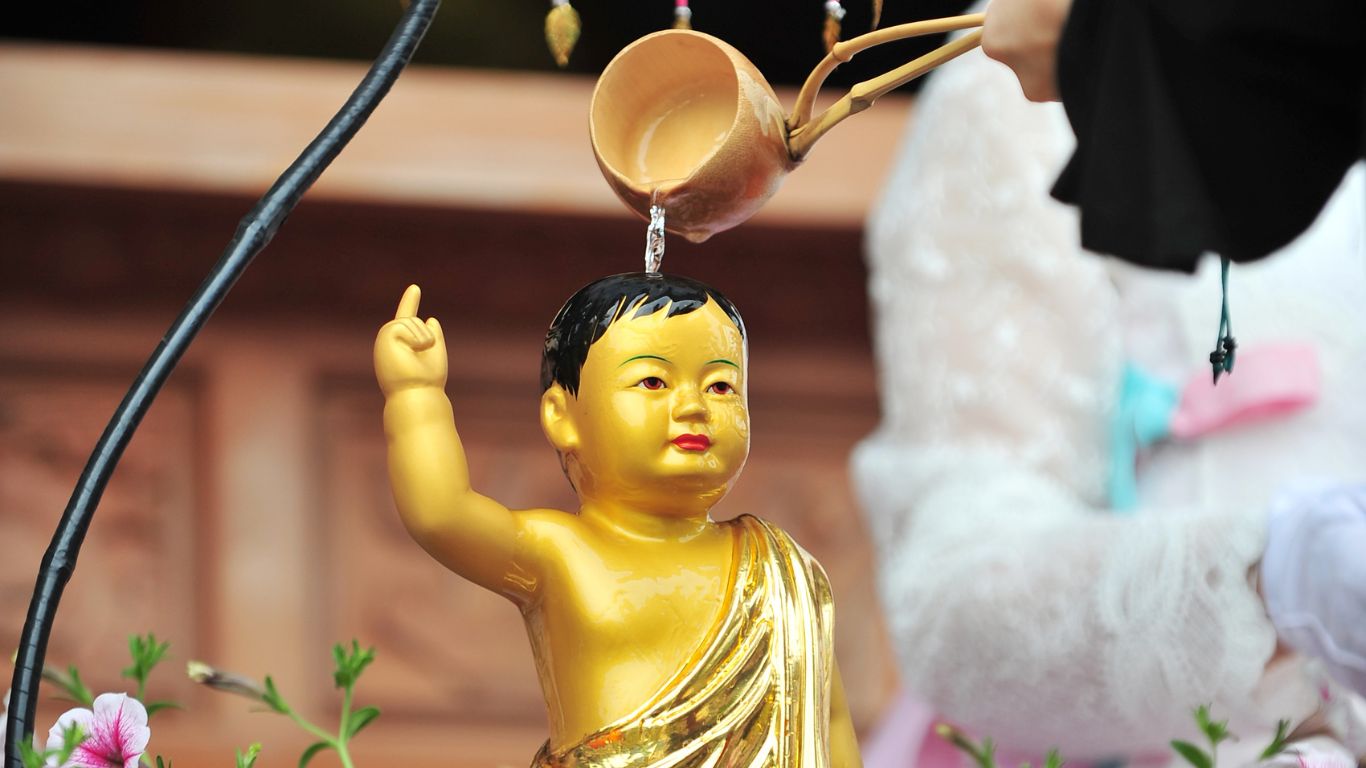
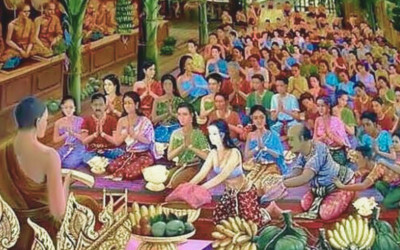
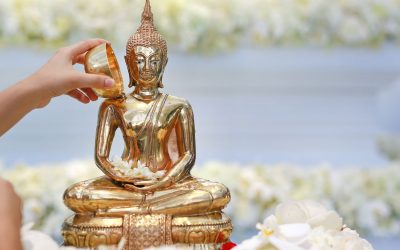
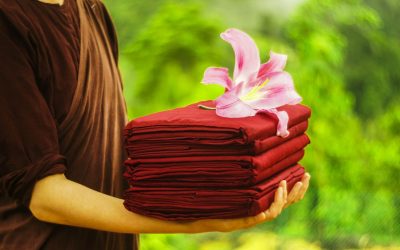
0 Comments